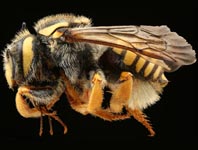Abstract
Hippomonavella charrua n. sp. is introduced based on material from the continental shelf off Uruguay. Bilaminar fragments of this species were also found in mid-Holocene deposits of Destacamento Río Salado Member, Canal de las Escobas Formation (Buenos Aires Province, Argentina), ca. 6,000 yr BP. Hippomonavella charrua n. sp. resembles H. brasiliensis Ramalho, Muricy & Taylor, 2008, but differs from this species in its more triangular and protruding avicularia occurring in just a small proportion of zooids. Hippomonavella charrua n. sp. is the third species of the genus with both fossil and Recent representatives. The tatiform ancestrula and the early astogeny are described for the first time in a species of Hippomonavella.
References
Bassler, R.S. (1934) Notes on fossil and recent Bryozoa. Journal of the Washington Academy of Sciences, 24, 404–408.
Bidenkap, O. (1897) Bryozoen von Ost-Spitzbergen. Zoologische Jahrbücher, Abteilung für Systematik, Geographie und Biologie der Tiere, 10, 609–639.
Brown, D.A. (1952) The Tertiary cheilostomatous Polyzoa of New Zealand. Trustees of the British Museum (Natural History), London, 405 pp.
https://doi.org/10.5962/bhl.title.118779
Calvet, L. (1904) Bryozoen. Hamburger Magalhaensische Sammelreise 1892–1893. Vol. 3. L. Friederichsen & Co, Hamburg, 45 pp.
De Blauwe, H. & Gordon, D.P. (2014) New bryozoan taxa from a biodiversity hotspot in the Eastern Weddell Sea. Studi Trentini di Scienze Naturali, 94, 53–78.
Figini, A., Carbonari, J. & Huarte, R. (2003) Geosuelo Puesto Callejón Viejo. Su posición cronológica y relación con eventos paleoclimáticos y paleoambientales. Actas Segundo Congreso Argentino de Cuaternario y Geomorfología, San Miguel de Tucumán, 2003, pp. 93–100.
Figuerola, B., Gordon, D.P. & Cristobo, J. (2018) New deep Cheilostomata (Bryozoa) species from the Southwestern Atlantic: shedding light in the dark. Zootaxa, 4375 (2), 211–249.
https://doi.org/10.11646/zootaxa.4375.2.3
Fucks, E.E., Schnack, E.J. & Aguirre, M.L. (2010) Nuevo ordenamiento estratigráfico de las secuencias marinas del sector continental de la Bahía Samborombón, provincia de Buenos Aires. Revista de la Asociación Geológica Argentina, 67, 27–39.
Gordon, D.P. (1984) The marine fauna of New Zealand: Bryozoa: Gymnolaemata from the Kermadec Ridge. New Zealand Oceanographic Institute Memoir, 91, 1–198.
Gordon, D.P. (1989) The marine fauna of New Zealand: Bryozoa: Gymnolaemata (Cheilostomida Ascophorina) from the Western South Island continental shelf and slope. New Zealand Oceanographic Institute Memoir, 97, 1–158.
Hanley, S. (1842) An illustrated, enlarged, and English edition of Lamarck’s species of shells. W. Wood, London, pp. 33–144.
Hayward, P.J. (1994) New species and new records of cheilostomatous Bryozoa from the Faroe Islands, collected by Biofar. Sarsia, 79, 181–206.
https://doi.org/10.1080/00364827.1994.10413558
Hayward, P.J. (1995) Antarctic Cheilostomatous Bryozoa. Oxford University Press, Oxford, 355 pp.
Hayward, P.J. & Ryland, J.S. (1991) New and little-known Bryozoa from Antarctica and the southwest Atlantic. Bulletin du Muséum National d’Histoire Naturelle, Série 4e, 13, 241–261.
Hutton, F.W. (1873) Polyzoa. In: Catalogue of the Marine Mollusca of New Zealand, with diagnoses of the species. Government Printer, Wellington, pp. 87–104.
Introcaso, A. & Ramos, V. (1984) La cuenca del Salado: Un modelo de evolución aulacogénica. Noveno Congreso Geológico Argentino, Actas, 3. Asociación Geológica Argentina, San Carlos de Bariloche, pp. 27–46.
Kluge, G.A. (1975) Bryozoa of the northern seas of the USSR. Amerind Publishing Co., New Delhi, 711 pp.
Kuklinski, P., Taylor, P.D., Denisenko, N.V. & Berning, B. (2013) Atlantic origin of the Arctic biota? Evidence from phylogenetic and biogeographical analysis of the Cheilostome bryozoan genus Pseudoflustra. PLoS ONE, 8, e59152.
https://doi.org/10.1371/journal.pone.0059152
López de la Cuadra, C.M. & García Gómez, J.C. (2000) The cheilostomate Bryozoa (Bryozoa: Cheilostomatida) collected by the Spanish ‘Antártida 8611’ Expedition to the Scotia Arc and South Shetland Islands. Journal of Natural History, 34, 755–772.
https://doi.org/10.1080/002229300299408
López Gappa, J. (2000) Species richness of marine Bryozoa in the continental shelf and slope off Argentina (south-west Atlantic). Diversity and Distributions, 6, 15–27.
https://doi.org/10.1046/j.1472-4642.2000.00067.x
López Gappa, J. & Lichtschein, V. (1988) Geographic distribution of bryozoans in the Argentine Sea (South-Western Atlantic). Oceanologica Acta, 11, 89–99.
MacGillivray, P.H. (1895) A monograph of the Tertiary Polyzoa of Victoria. Transactions of the Royal Society of Victoria, 4, 1–166.
https://doi.org/10.5962/bhl.title.6076
Pereyra, C., Pommares, N., Corbat, M.C., Luengo, M. & Fucks, E. (2018) Aspectos Paleoambientales del MB Destacamento Río Salado de la FM Canal de las Escobas, Cerro de la Gloria, Provincia de Buenos Aires. Séptimo Congreso Argentino de Cuaternario y Geomorfología, Libro de Resúmenes, Puerto Madryn, 2018, pp. 25–26.
Ramalho, L.V. & Calliari, L. (2015) Bryozoans from Rio Grande do Sul continental shelf, Southern Brazil. Zootaxa, 3955 (4), 569–587.
https://doi.org/10.11646/zootaxa.3955.4.8
Ramalho, L.V., Muricy, G. & Taylor, P.D. (2008) Two new species of Bitectiporidae (Bryozoa, Ascophora) from Rio de Janeiro State, Brazil. In: Hageman, S.J., Key, Jr.M.M. & Winston, J.E. (Eds.), Bryozoan Studies 2007. Virginia Museum of Natural History Special Publication No. 15. Virginia Museum of Natural History, Martinsville, pp. 235–241.
Richiano, S., Varela, A.N., D’Elia, L., Bilmes, A. & Aguirre, M. (2012) Evolución paleoambiental de cordones litorales Holocenos durante una caída del nivel del mar en la Bahía de Samborombon, Buenos Aires, Argentina. Latin American Journal of Sedimentology and Basin Analysis, 19, 105–124.
Stimpson, W. (1854) Synopsis of the marine invertebrata of Grand Manan: or the region about the mouth of the Bay of Fundy, New Brunswick. Smithsonian Contributions to Knowledge, 6, 1–66.
https://doi.org/10.5962/bhl.title.30062
Wass, R.E. & Yoo, J.J. (1983) Cheilostome Bryozoa from the southern Australian continental shelf. Australian Journal of Marine and Freshwater Research, 34, 303–354.
https://doi.org/10.1071/MF9830303
Waters, A.W. (1900) Bryozoa from Franz-Josef Land, collected by the Jackson-Harmsworth Expedition, 1896–1897. Pt. I. Cheilostomata. Journal of the Linnean Society, Zoology, 28, 43–105.
https://doi.org/10.1111/j.1096-3642.1900.tb01745.x
Yang, H.J., Seo, J.E. & Gordon, D.P. (2018) Sixteen new generic records of Korean Bryozoa from southern coastal waters and Jeju Island, East China Sea: evidence of tropical affinities. Zootaxa, 4422 (4), 493–518.
https://doi.org/10.11646/zootaxa.4422.4.3
Zágoršek, K. (2003) Upper Eocene Bryozoa from Waschberg Zone (Austria). Beiträge zur Paläontologie, 28, 101–263.

